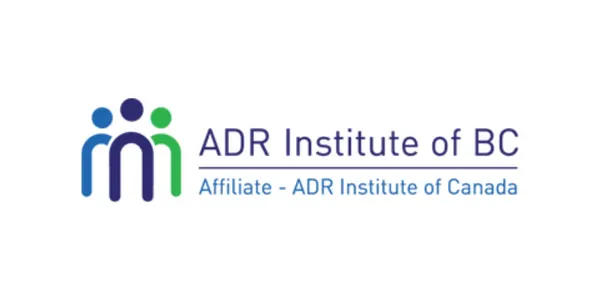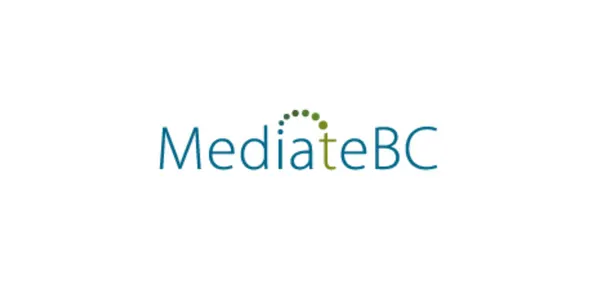
Neither of us want to budge. And we’re not really talking. I don’t want to go to court, but to get this resolved, that’s really the only option for us.
Mediation is a way to resolve a dispute. It's less formal than going to court, and much less expensive. Learn how mediation works, and how to get started with the process.
Understand how mediation works
“We were at an impasse. My partner and I were separating, but we couldn’t agree on parenting arrangements for our children. We’d met to discuss it, but things were getting more tense after each meeting. We decided to hire a mediator. It was somebody we both didn’t know, so we were leery. In the end, the person helped us find common ground and reach a reasonable compromise."
– Judy, Port Coquitlam, BC

Using the court system is complicated and costly. So many forms, even more deadlines. To hire a lawyer can set you back thousands of dollars without even stepping inside the courtroom.
Mediation is a way to avoid these formalities — a neutral person steps in to guide the parties toward a resolution. Mediators are trained professionals. They’ll set the stage to give people a better chance at reaching an agreement.
Choosing a mediator doesn’t mean you’ve chosen someone to “decide” who is right or who is wrong. Instead, mediators help to facilitate the discussion between two sides where communication has broken down or has become hostile.
Taking a matter to court is a paradox — filing a claim feels like you’re taking control, but then the legal process, with all its rules and procedures, can make you feel like a prisoner to the system. Mediation breaks those shackles.
You and the mediator work together to reach consensus. This can take the form of one-on-one meetings or group sessions with the other party, or a combination of these approaches. You decide in advance how the process unfolds.
Mediation avoids the reams of court-filed paper. No formal lawyers' robes either — mediation can happen in a relaxed and informal environment.
If you live in a remote area, mediation is available. There are mediators all across the province, or, if it isn’t feasible for the two parties to be in the same location, video chat can be used.
When you set a court date, you typically don’t see the judge the next day. Or even the next month. Trials can take a very long time to resolve. Imagine paying a lawyer by the hour over several years!
With mediation, disputes are resolved quickly, often as fast as a few weeks. Mediation fees are far less expensive, and you can get more certainty in advance for what it will all cost.
On average in BC, an entire mediation process might cost around $2,000. Usually, that’s split 50/50 between participants. That can be up to ten times less than the cost of a court case.
While family disputes and workplace conflicts are popular for mediation, a mediator can be tapped for most any civil dispute. If a court case has already started, you can even force the other party to mediate. (There are a few exceptions, which we explain below.)
Just because you hire a mediator doesn’t guarantee you will “win.” The parties have to work together with the mediator to come up with a solution. This often means compromise and a willingness to engage with someone that you’re already arguing with.
Mediation sets you up with the tools — informal, flexible and accessible tools — to help you resolve a dispute. But it’s on you to be open and available to the process.
Learn about the range of options
Mediate BC explains the methods to resolve conflict, from negotiation to mediation to going to court. Here, we explain options to resolve issues on a family breakup. Understanding the range of options can help you figure out if mediation might be a good fit for you and your legal matter.
Get started with mediation
Expectation setting is important. Spend some time reflecting on the issues you are about to mediate. What is important to you and why? What would a fair deal look like to you?
Write your expectations down on paper or electronically. Put the date on it. You don’t have to share this document with the mediator (or with anyone, for that matter); it’s an important piece of personal goal setting that will get you in the right mindset for mediation.
Mediation is usually a voluntary process. If you haven’t started a formal claim yet, all the people involved in the conflict need to agree to mediation. It could be good to discuss the possibility of mediation with the other party first. That way you both get involved in the process at step one.
If you’ve already filed a claim
If you’ve already filed a claim in the Supreme Court of BC, you can file a notice to mediate to compel the other party to mediate the matter. There are certain situations where you cannot do this, such as claims for compensation for abuse (see the list here).
If the other party ignores this request, the judge can pause the court case until mediation happens.
There are specific time frames you need to be aware of:
The notice to mediate has to be filed within 60 days after the filing of the first statement of defence, and in any event within at least 120 days of the trial date. (The time frames are different in family matters.)
Once you send the notice to the other parties, you have 14 days to agree on a mediator, or otherwise have one appointed.
Once you’ve agreed on a mediator, you have 60 days to complete the mediation.
To find a mediator, you can consult the directory maintained by the ADR Institute of BC. Or you can search over Mediate BC's listing.
On that first phone call with the prospective mediator, you can learn more about their style, the associated fees, and what else to expect.
Once you choose a mediator, they will typically have a one-on-one discussion with each party before the mediation begins. Before this meeting, you should collect all relevant documentation to your dispute.
As the process unfolds, there may be times when you feel like certain proposed resolutions are unfair. Keep an open mind. Mediation is designed for the parties to compromise, and the best compromise is where both parties leave feeling a little bit unsatisfied.
This is why the expectation setting exercise in step 1 is so important. This is your North Star. Refer back to those thoughts throughout the mediation.
Who can help

ADR Institute of BC
Maintains a roster of qualified mediators and arbitrators who help with dispute resolution.

Family Justice Centres
Listing of family justice centres across BC offering free mediation services.


